sexual orientation it is the way an individual relates affectively and sexually with other people. already the gender identity it is the way a person identifies their own gender and how they present themselves socially.
In reality the two terms are quite different because they represent different characteristics of a person.
sexual orientation
Sexual orientation is the way a person experiences their affective and sexual relationships. It represents the type of sexual and/or emotional attraction a person feels, that is, whether they are attracted to people of a different gender or the same gender.
Sexual orientations are as follows: heterosexual, homosexual, bisexual, asexual and pansexual.
Heterosexual
A heterosexual person is someone who is attracted to people of the opposite gender. Thus, heterosexual relationships are those that take place between a woman and a man.
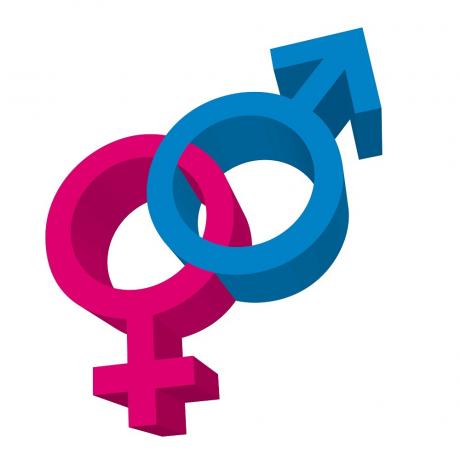 Symbol of heterosexual orientation: relationship between man and woman.
Symbol of heterosexual orientation: relationship between man and woman.
Homosexual
A homosexual person is someone who is attracted to and relates to people of the same gender as hers. In this case, relationships can be between two women or between two men.
The term homoaffective is also used to define the relationships of couples formed by two people of the same gender.
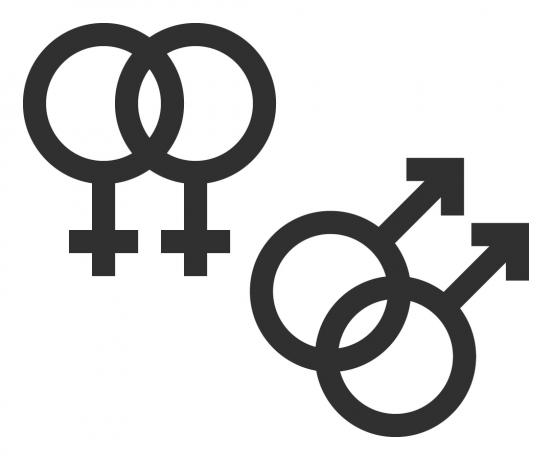 Symbol of homosexual orientation: relationships between women or between men.
Symbol of homosexual orientation: relationships between women or between men.
To learn more, also read the meanings of homosexuality and homoaffective.
Bisexual
Bisexual people, on the other hand, are the ones who can feel emotional and sexual attachment to people of all genders. Bisexual people can relate, for example, with both women and men.
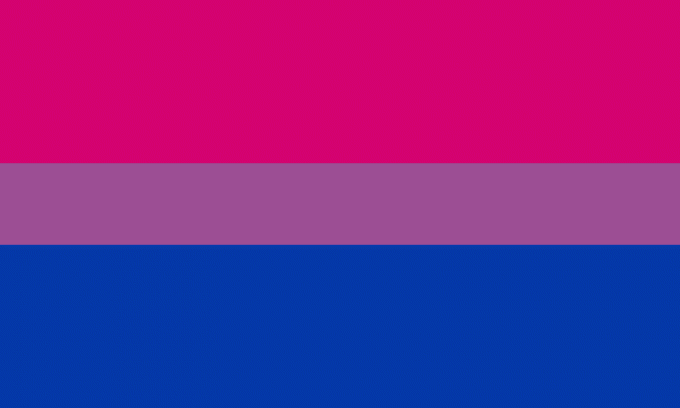 Bisexual Pride Flag.
Bisexual Pride Flag.
asexual
The case of asexual people is a little different because it is not an interest in people of one gender or another. In asexuality, there may be little or no interest or willingness to have relationships with other people.
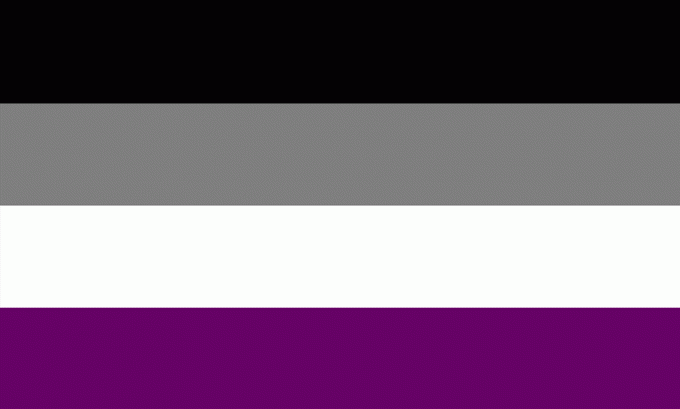 Flag of asexual pride.
Flag of asexual pride.
pansexual
Pansexuality is broader than bisexuality. A pansexual person can be interested in people of all genders and also of all sexual orientations.
For example, a pansexual person can relate to both men and women, just as he can relate to heterosexual, homosexual or bisexual people.
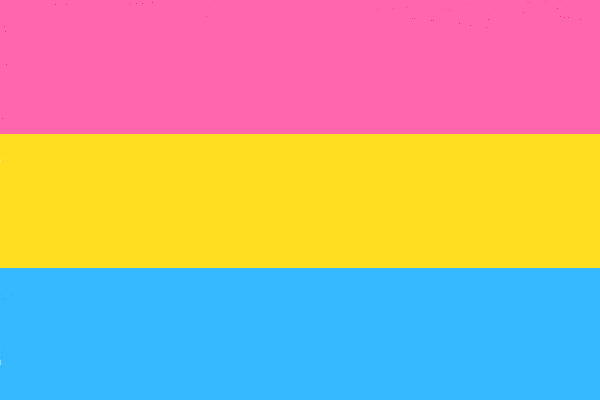 Flag of pansexual pride.
Flag of pansexual pride.
gender identity
Gender identity is how an individual identifies their own gender. That is, if the person understands that he belongs to the male or female gender. It is also possible that there is identification with the two genders or even with none of them.
It represents the way a person identifies his own gender, which can be the same or different from his biological gender.
Gender identities are as follows: cisgender, transgender and non-binary.
cisgender
Cisgender is the term used to define people who feel identified with their biological gender. Thus, a cisgender person is one who feels according to his birth gender, he lives and expresses himself according to the gender assigned by his biological characteristics.
For example: a person who is born with the female gender (woman) and who identifies with it, that is, feels like a woman.
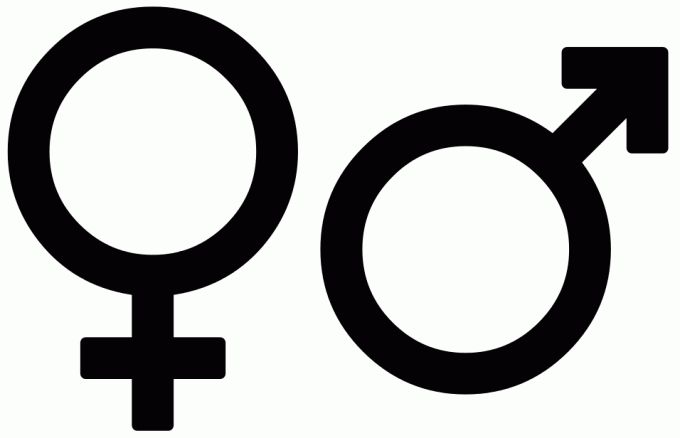 Cisgender symbols: man and woman.
Cisgender symbols: man and woman.
Learn more about the meaning of cisgender.
transgender
Transgender people are people who do not identify with their biological gender. These individuals feel discomfort with the gender assigned to them and usually do not identify with the characteristics (physical, biological, emotional or sexual) that they have.
For example: a person who is born with the male gender (male), but realizes that he does not identify with him, feeling like a woman.
 Transgender pride flag.
Transgender pride flag.
To learn more about the subject, also know the meaning of transgender.
non-binary
Non-binary people are those who do not feel fit and identified with one of the genders, that is, they do not identify themselves as being a woman or a man.
There are variations in non-binarity. The person may feel that they do not belong to either gender (male or female) or they may, for example, feel that they are a mixture of both.
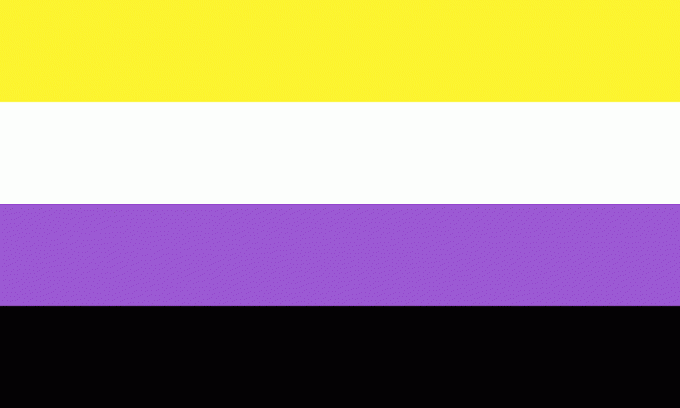 Non-binary pride flag.
Non-binary pride flag.
To understand more, read here the meaning of non-binary.
What is gender?
Gender is the classification based on the biological sex a person is born with, that is, according to their characteristics, the male or female gender can be determined.
Gender is assigned according to biological and physical characters that can be perceived in a person, mainly through the genitalia. Other information is also important, such as: some physical characteristics, the predominance of different hormones or the reproductive system.
Also read about gender identity.
